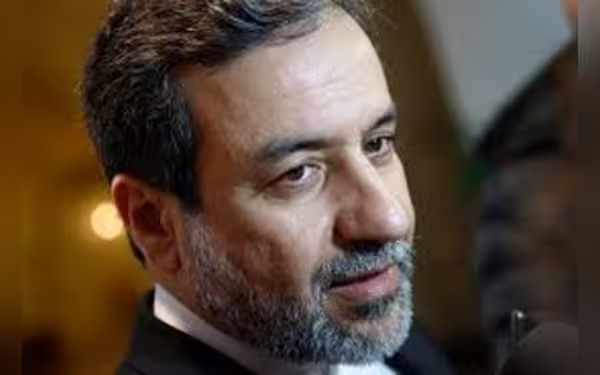Saturday, November 16, 2024 05:47 PM
Iran Open to Dialogue, Rejects US and EU Sanctions
- Iran willing to engage in diplomatic discussions.
- Sanctions target Iran's aviation sector amid missile allegations.
- Dialogue must be based on mutual respect, says foreign minister.
 Image Credits: thefrontierpost
Image Credits: thefrontierpostIran expresses willingness for talks but rejects US and EU sanctions, emphasizing dialogue based on mutual respect.
In recent developments, Iran has expressed its willingness to engage in diplomatic discussions to resolve ongoing disputes. However, the country firmly rejects any form of "threats and pressure" from external powers, particularly in light of new sanctions imposed by the United States and three European nations. These sanctions specifically target Iran's aviation sector, following allegations that Tehran supplied ballistic missiles to Russia amid the ongoing conflict in Ukraine.
Abbas Araqchi, Iran's foreign minister, emphasized that while Iran is open to dialogue, it must be conducted on the basis of "mutual respect." He stated, "Iran continues on its own path with strength, although we have always been open to talks to resolve disputes … but dialogue should be based on mutual respect, not on threats and pressure." This statement highlights Iran's stance that constructive communication should not be overshadowed by coercive measures.
On a related note, Araqchi has categorically denied any claims that Iran has delivered ballistic missiles to Russia. He argues that the sanctions imposed by the United States, Germany, Britain, and France will not resolve the underlying issues between these nations and Iran. Instead, he suggests that such actions may further complicate the situation.
The recent sanctions, which were enacted on Tuesday, include measures against Iran's national airline, Iran Air. This move is part of a broader strategy by Western powers to hold Iran accountable for its alleged military support to Russia, which has raised concerns in the international community.
As the situation unfolds, it is clear that diplomatic relations between Iran and Western nations remain tense. The insistence on dialogue from Iran's side indicates a desire for resolution, yet the backdrop of sanctions and accusations complicates the path forward. It remains to be seen how both sides will navigate these challenges and whether a constructive dialogue can emerge from the current impasse.













